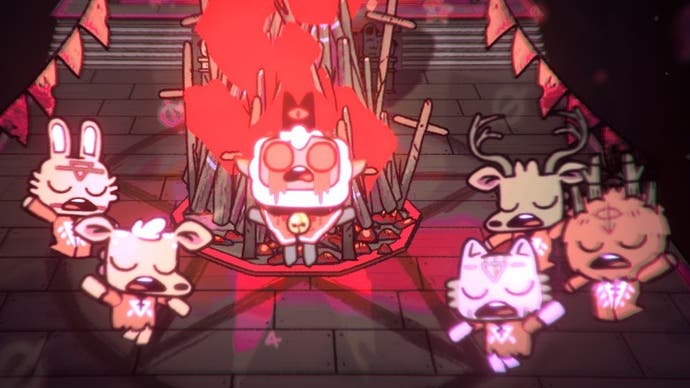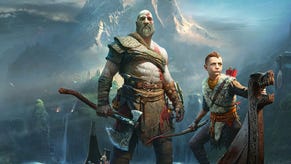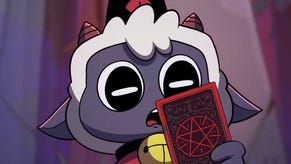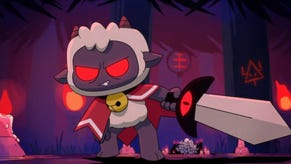I think I love Cult of the Lamb
Baabaric.
When I play Cult of the Lamb I feel all of these other games inside it. I feel Hades, I feel Undermine (an underrated gem), I feel Slay the Spire, the Binding of Isaac. Maybe I even feel Animal Crossing, if Tom Nook were the devil and the whole island locked in a cult - oh so it is Animal Crossing! But even with all of that swirling around, Cult of the Lamb manages to emerge as itself, feeling unforgettably and irrepressibly unique. Whisper it but this could be great.
It's a Roguelite action RPG, in essence. You've got one shot at fighting through a series of rooms, many with enemies, until eventually you reach a boss to complete the mission. There's a lot of slashing and dodge-rolling, and the pace is fast.
But the different bit is the in-between, which is where the theme of the game really comes through. You're a lamb saved by the devil as a blade hits your neck to sacrifice you. In return, though, the devil wants you to create a cult for them.
You do this by converting other cute little animal people like you to your cult. Your eyes glow red and they're whisked away on a demonic portal to your base, a small cutesy forest. Soon, though, that forest is cleared for resources to build your temples and shrines and other culty buildings with, and from these, you access upgrade-trees.
There's nothing particularly new about any of this, but what makes Cult of the Lamb so exciting is the way it goes about doing it. The whole thing is dripping in demonic cult chic. In many ways it couldn't look more adorable: cute little woodland animals hop enthusiastically around a bubbly-edged world. But at the same time everything is discordant and cursed. Incomprehensible demonic voices (that sound a lot like Jabba the Hutt...) play in your ear and encourage you to do horrible things to your followers. It's a wonderful juxtaposition.
And it's playful. Developer Massive Monster, which I admit I had never heard of before this game, never misses an opportunity to leverage the theme for an activity in the game. In your temple, for instance, you actually give sermons to your followers in order to raise their faith (an important gauge) as well as pass doctrines (to unlock follower traits) and conduct rituals. This all happens in a dinky little church while your lamb leader floats from the floor, surrounded by godly (devilish?) light. Massive Monster didn't have to realise this so intricately but it has, and it's endlessly delightful to watch.
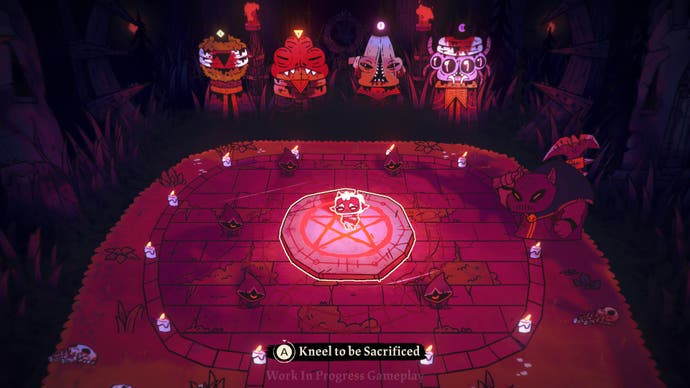
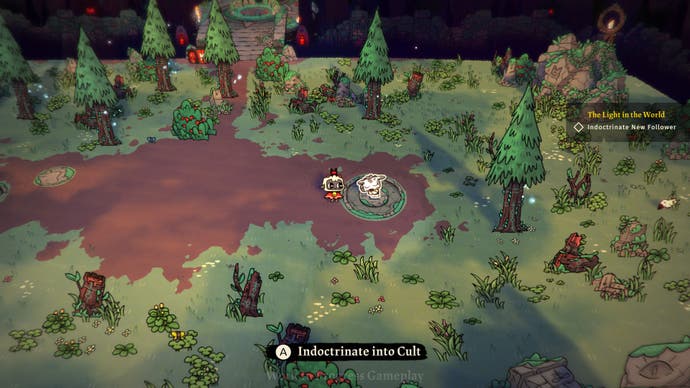
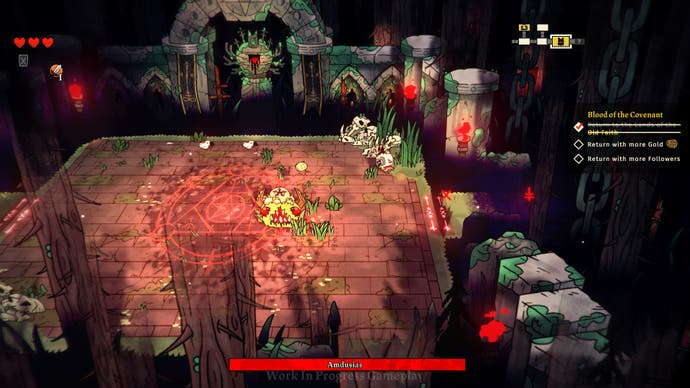
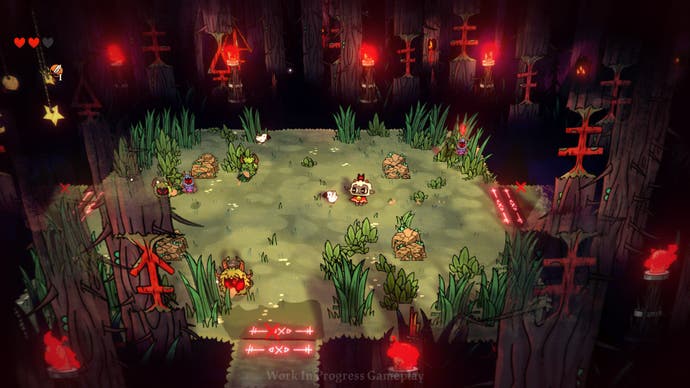
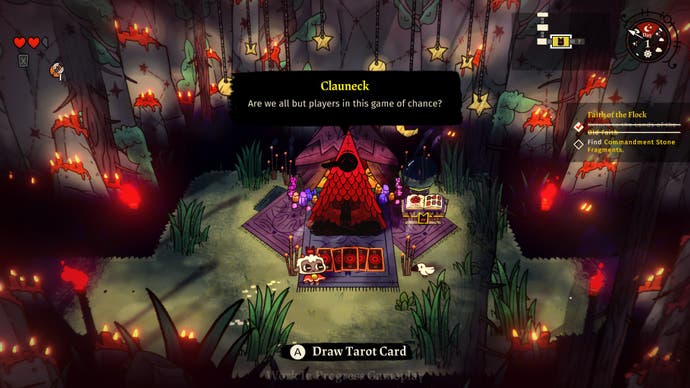
This care and detail carries across to every area of the game. When you're adventuring, you sometimes come across rooms that offer tarot cards, or heal you, or give you stone fragments, and it's never a throwaway moment. Always, there's a lavish scene in that cartoon-gone-weird tone.
Followers are more than they seem, too. They have their own traits and you can give gifts to them, increasing their loyalty until you can, and I quote, "Take everything from them," which is horribly brilliant. Plus, you need to feed them and then clear up what comes out of the other end before it spreads disease.
This is the game layering up, and as your base widens and evolves, more layers emerge. A magic system is introduced to combat, and the game starts offering you different kinds of weapons and magic as you play. Tarot cards with passive buffs begin to formulate into character builds, and levels broaden to offer multiple routes, each with their own considerations. In other words, strategy emerges.
How much strategy and depth there ultimately is, I don't know. I haven't seen much, only a few hours. But judging by the size of the upgrade-trees, and the number of level hubs (which you can replay and evolve as you do) I can't yet access, there's going to be a substantial amount on offer. And if it's all as detailed as this? Well, whisper it again, but Cult of the Lamb could be great.
